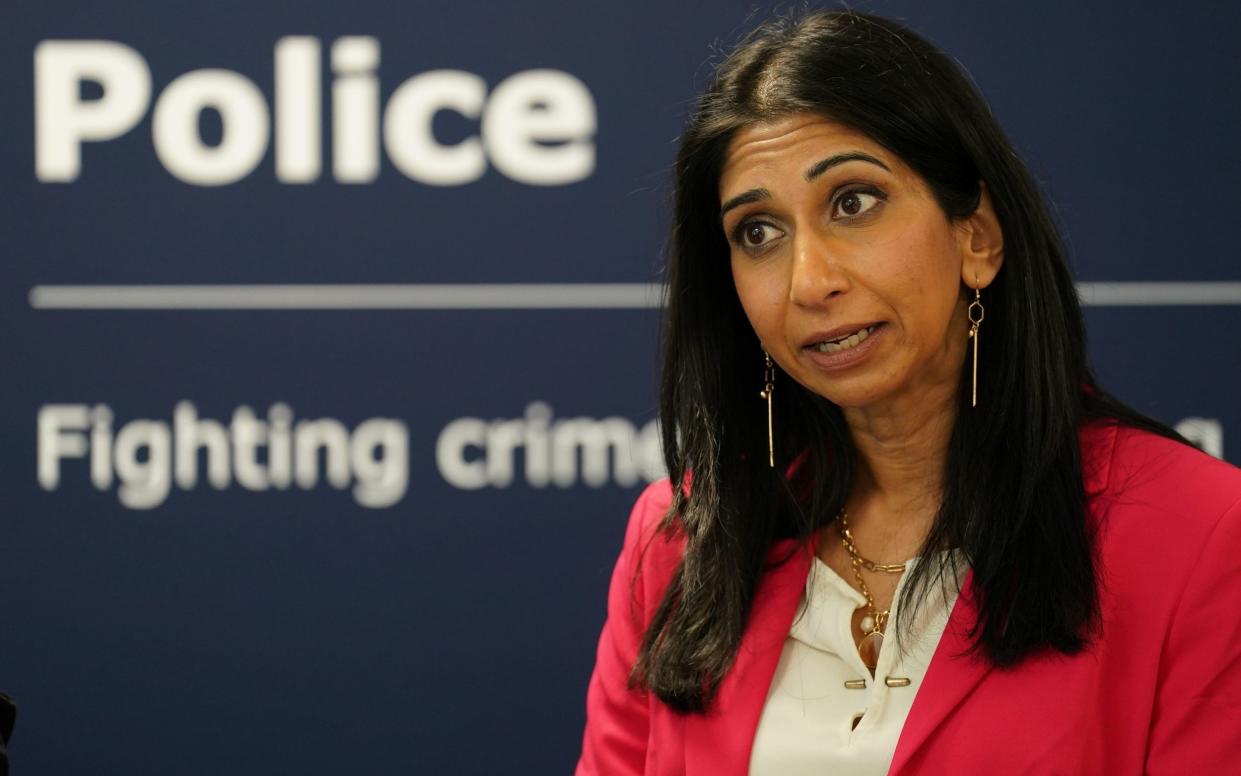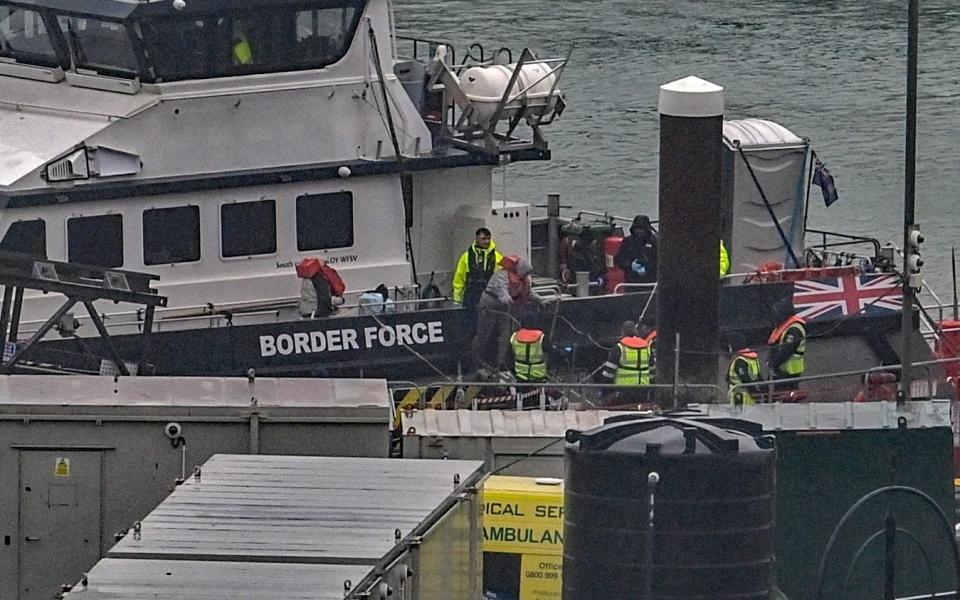Illegal migrants fuelling crime and prostitution, warns Suella Braverman

- Oops!Something went wrong.Please try again later.
Illegal migrants are fuelling crime and prostitution, Suella Braverman has warned, as her small boats Bill cleared the Commons on Wednesday with a majority of 59.
Speaking ahead of the Third Reading debate, the Home Secretary said migrants crossing the English Channel on small boats were linked to “heightened levels of criminality”.
"I think that the people coming here illegally do possess values which are at odds with our country," she said. "We are seeing heightened levels of criminality when related to the people who've come on boats, related to drug dealing, exploitation, prostitution.
"There are real challenges which go beyond the migration issue of people coming here illegally. We need to ensure that we bring an end to the boat crossings."
The Illegal Migration Bill which was passed by 289 votes to 230 gives ministers powers to detain nearly all migrants who arrive in the UK illegally and swiftly remove them to their home country or a third safe nation such as Rwanda.
Asked to provide evidence for her comments on criminality at a subsequent event in Westminster, she said it was based on information from police chiefs. "I consider police chiefs experts in their field and authoritative sources of information," she said.
It was “not in all cases,” but she added: “It is becoming a notable feature of everyday crime-fighting in England and Wales. Many people are coming here illegally and they’re getting very quickly involved in the drugs trade, in other forms of exploitation.”

National Crime Agency chiefs warned last year that a “significant number” of the Albanians in the UK who had entered illegally were working in the “grey” market or for organised criminal drug gangs and were sending back “hundreds of millions of pounds” a year to Albania.
Ministers avoided any Conservative backbench rebellions over the Bill as none of the MPs pushed their amendments to a vote. They warned, however, that ministers could face votes against them in the Lords if they did not come forward with further concessions.
Theresa May and Sir Iain Duncan Smith, both former Tory leaders, had sought to exempt victims of modern slavery in the UK from being removed.
Mrs May warned that the Bill would leave more people in slavery in the UK, calling it a "slap in the face" for anyone who cares about the victims of human trafficking.
Victims forced 'to remain in slavery'
She told the Commons: "Modern slavery is the greatest human rights issue of our time. The approach in this Bill, I believe, will have several ramifications. I believe it will consign victims to remain in slavery."
Sir Iain said: "We need to send the right signals about this and I think the problem with this Bill right now is it's unnecessarily now targeting a group of people that are not the problem, themselves will suffer, and ironically we will fail as a government through the home affairs end of it because the police simply won't be able to get those prosecutions."
Tim Loughton, a former minister, welcomed the Government’s concessions on safe and legal routes, with ministers drawing up plans for such schemes within six months of the Bill becoming law.
But he warned: “We need to see some real and workable details in the coming months as the Bill goes through the Lords."
Mr Loughton has also secured concessions on the detention of unaccompanied children, whereby any extension of the period they are held has to be sanctioned by judges and in accord with ministers’ obligations under the Children’s Act.
He said he would not be pushing his amendment to a vote but wanted the Government to specify a time limit on child detention. “We are not going to force it to a (vote) because I trust the migration minister to do the right thing before this Bill finalises its stages,” said Mr Loughton.
MPs on the Conservative Right had previously secured amendments giving the Home Secretary discretion to ignore last-minute injunctions by the European Court of Human Rights. This is likely to be one of the most contentious elements of the Bill when it starts its passage through the Lords.

